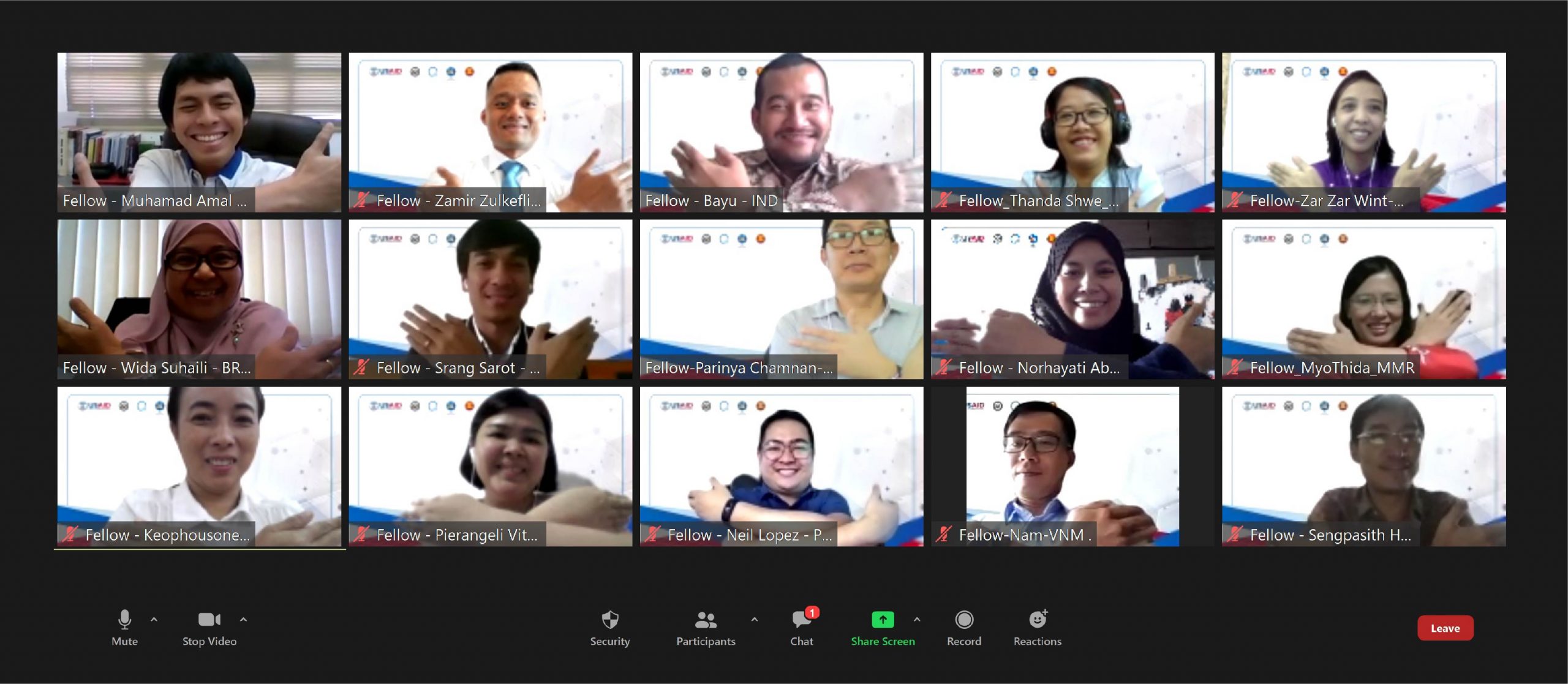Indonesia, 8 October 2020 – The ASEAN Foundation with support from the ASEAN Committee on Science, Technology and Innovation and the U.S. Government, through the U.S. Agency for International Development (USAID), launched the virtual 2019/20 ASEAN Science and Technology Fellowship Close Out Workshop.
The ASEAN Science and Technology Fellowship is a regional programme that aims to provide opportunities for scientists in Southeast Asia to apply their knowledge and analytical skills in solving public policy challenges. At the virtual workshop, 17 fellows from nine ASEAN countries will present key findings from their 15-month fellowships, which focused on three main issues, Digital Economy, Innovative Start-ups, and Technology and Innovation for United Nations Sustainable Development Goals.
One of the highlights of this year’s fellowship is the active involvement from the fellows in COVID-19 mitigation efforts, from developing a thermal temperature scanner and low-cost ventilator, to volunteering in producing – and distributing – hand-sanitizer and other safety equipment.
“Since 2014, ASEAN and the United States have partnered together to support 69 fellows to strengthen public institutions under 29 ministries across the region,” said Mr. Ryan Washburn, USAID Principal Officer to ASEAN. “On behalf of USAID, and together with ASEAN, we congratulate the 2019-2020 Fellows cohort for their remarkable work to address COVID19 mitigation efforts while promoting evidence-based contributions at the policy-making table,” he added.
“Fighting COVID-19 can be done in so many ways and anyone in the world can contribute. As engineers, I believe we can support the health care units by innovating better medical devices,” said Dr. Srang Sarot, a 2019/2020 fellow from Cambodia who helped develop a low-cost mechanical ventilator during his fellowship.
Another fellow who took an active role in combating the pandemic is Dr. Parinya Chamnan, from Thailand. As a clinician, he was a part of the medical team responsible for taking care of patients under observation.
“In order to contain the virus, we built a new ‘field hospital’ to separate other patients from COVID-19 patients and address possible shortage of accommodation. I also helped revise standard treatment guidelines to reduce the risk of transmission between patients and healthcare professionals,” said Dr. Parinya.
In addition to serving as the graduation ceremony for 2019/20 fellows, the event also marks the closure of the ASEAN Science and Technology Fellowship Programme. On this occasion, both fellows and alumni will discuss how to utilise the existing fellowship alumni network to sustain the science-based policy making effort into the future.


